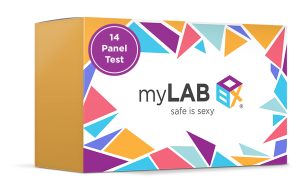How to Use an At Home Hepatitis C Test Kit

Using an at Home Hepatitis Test Kit
There isn’t a vaccine that outright prevents Hepatitis C, but it can be treated and cured thanks to the latest antiviral drugs. That’s fantastic news, as long as you’ve been properly screened! Screening can take place at home using a Hep C test kit. With myLAB Box, order a Hep C test kit and use the finger prick to collect your blood sample. Ship the sample to our lab facility with the provided return label and your results will be available in our secure online portal in a few days!
As we mentioned earlier, routine testing is the key to taking control of your health. Most of the time, you may not realize if you’ve been exposed to an STD or other virus. Once an infection is diagnosed, you will be able to treat it before it becomes a problem. Regular screening for the most common infections is the smartest and safest way to learn your status.
The best way to prevent Hepatitis C is to avoid behaviors that can contract and spread the disease. That may not be a realistic option for everyone. The next best step is regular testing so you know your status and can treat immediately. Beyond that, experts recommend re-testing for Hep C roughly 3 months after a positive test result.
Worried you might have symptoms? Order a Hepatitis C home test kit and get results fast.
What Exactly is Hepatitis C?
Hepatitis C, or Hep C, is a contagious viral infection that causes inflammation of the liver. Because it is blood-borne, Hep C can be contracted in a variety of ways. Having sex with an affected person during menstruation can pass the virus between partners. Anal intercourse is another common way that Hep C is transmitted. Beyond sex, this infection can also be contracted by using (or sharing) unsterilized needles. This is why tattoos and body piercings are common causes of this infection. The virus is not present in saliva, so it is unlikely to be transmitted via kissing or oral sex.
Understanding Hepatitis C
An untreated Hepatitis C progresses through several stages of infection. That’s why testing at a clinic or using an at-home testing kit is critical for accurately diagnosing Hep C. Without proper screening, it can be remarkably difficult to accurately track the symptoms of this disease. Identifiable signs can pop up at any point between 2-to-26 weeks after infection. For some, Hep C is a short-term illness. However for many, it can become a long-term, chronic infection that causes many complications, including death.
These are the stages of Hepatitis C:
Normal Hepatitis C:
In the first phase of infection, you may experience fatigue, muscle aches, and tenderness in the abdomen. Your bowel movements may be surprisingly light in color, while your urine is a dark yellow color. In addition, your eyes and skin may acquire a yellowish tinge.
Acute Hepatitis C:
Acute Hep C adds more symptoms to the mix. In addition to those mentioned above, acute Hepatitis C may cause nausea and a low-grade fever. This is often accompanied by chills. You may suffer from loss of appetite and have mood swings. Many people have reported itching of the skin as well. There can be an accumulation of fluid at the feet. In some situations, acute Hep C has caused carriers to vomit blood.
Chronic Hepatitis:
The symptoms of this stage are the same as in the acute Hepatitis C phase, although some people go for years without displaying any symptoms. Often, the medical community refers to this phase as “dormant” or “latent” Hepatitis C. However, following latency, this disease manifests suddenly with liver inflammation and scarring. Complications may include liver cirrhosis, liver cancer, and ultimately death.
Popular Tests

Total Box
14 Panel STD Test
In Stock – Free Shipping
$369 – $399
